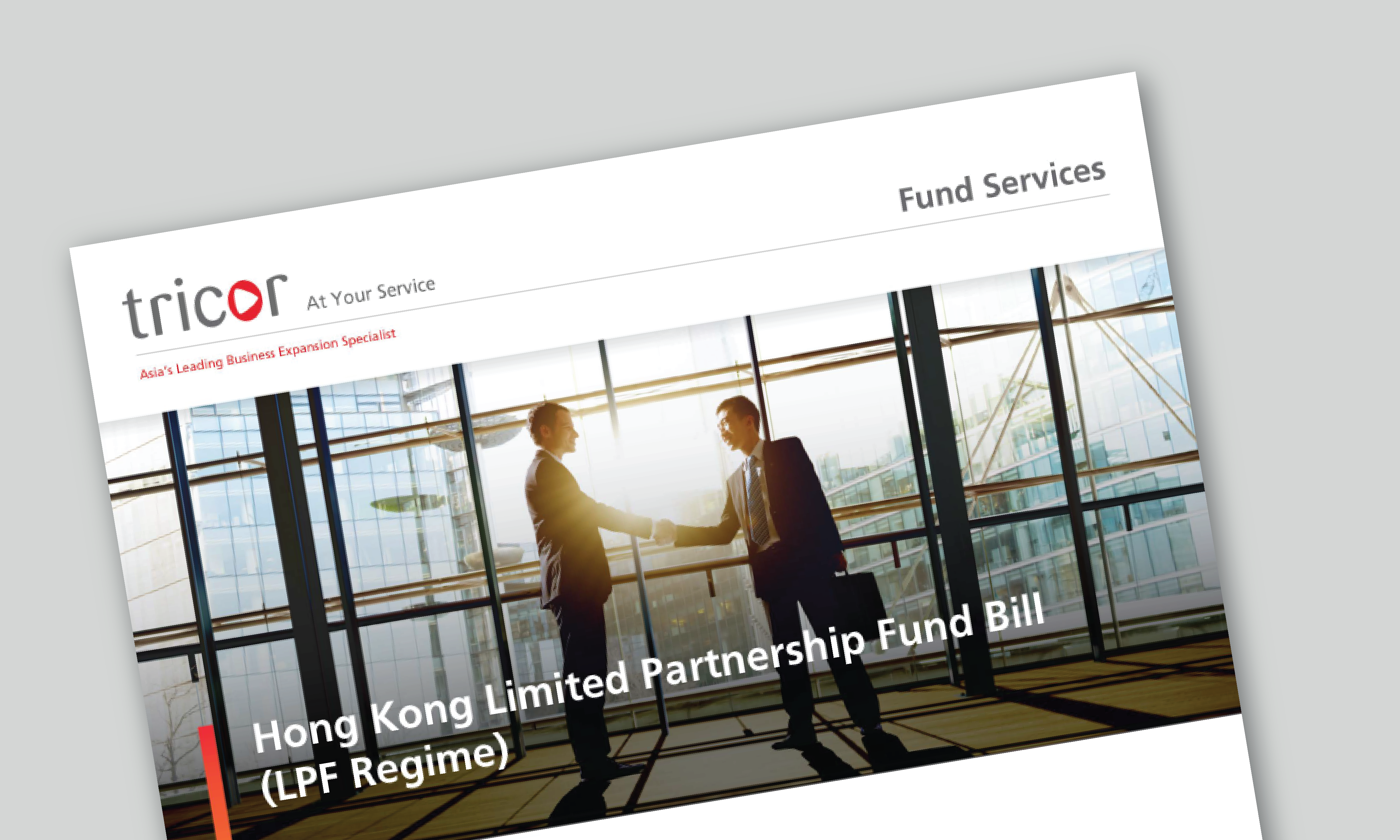If your investment fund is currently domiciled in one of the offshore jurisdictions and you wish to “co-locate” the fund in Singapore, Tricor Singapore will guide you to make a well-informed decision. In this article we are looking at investment funds based in the Cayman Island (in respect of which the Managers are based in Singapore), keeping in mind the VCC fund structure in Singapore.
Fund Managers are increasingly choosing Singapore as a preferred location for funds since new laws in the Lion City came into force in January 2020 to encourage fund managers who are looking to incorporate or move their investment funds to Singapore.
Tricor has decades of expertise setting-up and structuring funds and managing the governance, risk and compliance in both markets, among many others globally. Here are more details of the changes.
Regulatory revamp in relation to Cayman Islands Fund
In an attempt to regulate previously unregulated private funds, the Cayman Islands government undertook a wave of legislative amendments that were passed on February 7, 2020. Private funds have been placed under the jurisdiction of the Cayman Islands Monetary Authority (“CIMA”) with the aim to further enhance the country’s anti-money laundering laws. These changes arose from recommendations issued by a Caribbean taskforce with guidance provided by the European Union’s Code of Conduct Group.
Two pieces of legislation were impacted by way of the Mutual Funds (Amendment) Law 2020, and a newly enacted Private Funds Law 2020. The deadline to comply with the new laws was in August 2020. Cayman Islands funds now adhere to tighter compliance measures, which inevitably translates to higher costs. Some of the major changes include:
- annual audit of private funds by an auditor approved by CIMA, signed off by their Cayman office
- a four-eyed principle in which at least two directors are required for applicants that are companies, and at least two natural persons must be named
- anti-money laundering officers must be named in the registration process with CIMA
- demonstrated compliance with safe-keeping, cash-monitoring and valuation of securities requirements, either by the manager or an appointed Third Party
The potential for additional reporting and disclosure of information for tax purposes increased after the following a meeting of EU finance ministers on February 18, 2020. A number of additional entities have also been impacted, including but not limited to certain master funds, specific alternative investment vehicles and funds formed for a single investment when , changing the definition to clarify and to extend its scope to additional entities.
Relief for Cayman Islands funds arrived on October 6, 2020, when the following its enhanced framework. However it’s important to consider several factors when considering a Cayman Islands fund:
- the Cayman Islands remains on the Netherland’s list of low-tax and non-cooperative jurisdictions because removal is not necessarily automatic for member states of the EU
- the costs attached to Cayman Islands funds has increased with higher set-up costs and the additional cost of compulsory audits
- there are no guarantees that further laws won’t be introduced in the near future. 2020 has already seen three new fund laws enacted affecting private funds and, in particular, closed-end funds
Singapore attracts local, Asian and global Fund Managers
Setting-up and doing business in Singapore is straight forward. The city boasts a strong rule of law, robust regulatory standards, access to a highly-skilled workforce, efficient administration and excellent global connectivity.
For these reasons, many Fund Managers are stepping up their expansions into Singapore. In 2019, in line with the global trend, rising by 15.7% to reach SGD 4.0 trillion or USD 2.9 trillion. Growth was wide-ranging with the traditional sector experiencing a strong rebound, registering 25% growth while the alternatives sector saw sustained growth of 12% in 2019 to SGD 721 billion, led by private equity (“PE”) and venture capital (“VC”) managers, with combined AUM from both these asset classes growing by 16% to SGD 254 billion.
Singapore’s new Variable Capital Companies Act
To further enhance the financial ecosystem and attract locally-based asset managers, Asian-based fund managers and family offices, . Although it appears to be a bold move, realistically the new fund regime aligns Singapore with other jurisdictions which have been operating successfully at an international investment level, with comparable features to the Luxembourg’s société d'investissement, à capital variable (“SICAV”), Caymans’ Segregated Portfolio Company (“SPC”) and Hong Kong’s Open-Ended Fund Company (“OFC”).
Until Singapore’s VCC regime was introduced, to domicile an investment fund in Singapore the choice of fund vehicles was typically restricted to a “unit trust”, “limited partnership” or a “company”, each with its limitations such as the restrictions under the Companies Act for a “company”.
At the January 2020 launch, 20 VCCs were established through a pilot program initiated by the Singapore government’s Monetary Authority (“MAS”) in collaboration with the Accounting & Corporate Regulatory Authority (“ACRA”). As of 11 November 2020, there are 163 VCCs and the first retail VCC was listed on the Singapore Exchange (“SGX”) on 21 September 2020.
In summary
Tricor welcomes the VCC regime in Singapore which will enable Singapore to further grow its Fund Management and Fund Administration business. Singapore is underpinned by a strong and stable rule of law and a relatively neutral status in global politics. The VCC offers attractive tax breaks in line with other offshore jurisdictions and the city state funds and promotes technology initiatives that support robust data protection and cybersecurity.
Tricor Axcelasia
Tricor recommendations are based on the unique requirements of each fund manager.
You can confidently decide your next step forward with Tricor Axcelasia professional services experts who provide strategic business advisory and governance risk & compliance (GRC) systems to publicly listed companies, private companies, multinational corporations and government-linked entities.
The Tricor Group has been setting-up and structuring funds for investment and investors in Asia, the Caribbean and Europe for more than 20 years. With a deep understanding of the tax benefits and changing laws in each jurisdiction.
Book a meeting with:
Mr. Raymond Page, Managing Director, Tricor IAG
(65) 6236 5472
Ms Ong Su Faye, Associate Director, Tricor Axcelasia
(65) 6325 5739







